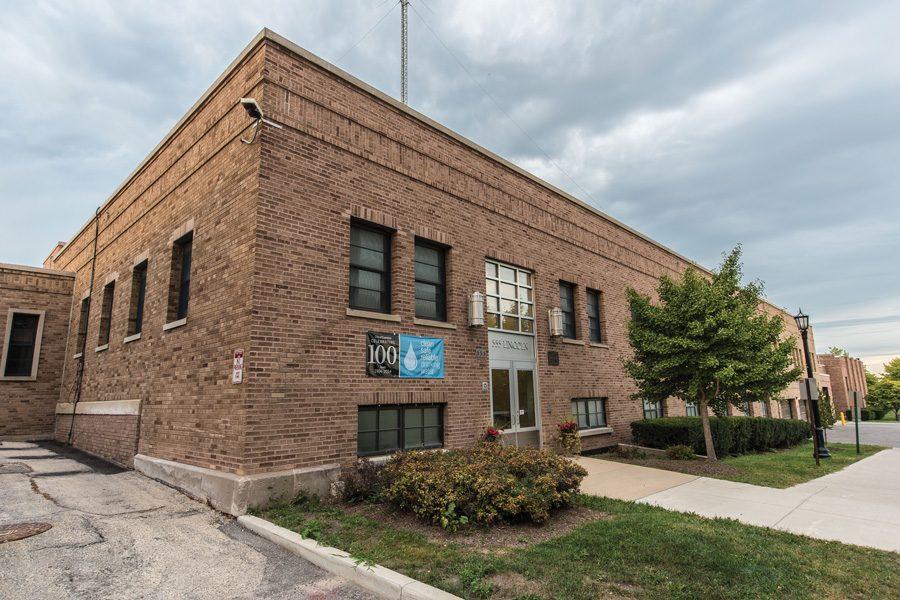Despite lawsuit, south Evanston water is potable, officials say
Daily File Photo Noah Frick-Alofs
The Evanston Water Plant is at the center of the city’s water system. Water pipes in south Evanston were found to have coal tar in and around them, resulting from gas pipes that were used in the late 19th to mid-20th century.
September 25, 2016
As Evanston continues its lawsuit against two energy companies for materials found in and around water pipes, officials say the water in south Evanston is safe to drink.
Evanston refiled a lawsuit against ComEd, an electric utility company and Nicor, a natural gas distributor, this May over materials found in water pipes.
In 2014 and 2015, city staff found a black crust on the outside of a water line and another pipe in the area of Dodge Avenue. Both areas of black crust match the coal tar found at the Skokie Manufactured Gas Plant Site, which is just west of the city on Oakton Street and McCormick Boulevard.
In summer 2015, the same black crust was found inside the Dodge Avenue waterline.
According lawsuit documents, the city believes the materials, which are not harmful at the levels found in Evanston water, were brought to the area by gas lines used the mid-20th century that are no longer in use. The lawsuit was refiled in May after an independent testing laboratory confirmed coal tar in places on water lines around James Park.
City manager Wally Bobkiewicz said the city is being as transparent as it can about the lawsuit and results of the water testing.
“Given the issues around the country with water quality, certainly outside of Evanston such as Flint, Michigan, people are very tuned-in to these issues,” he said. “There is no hazard to anyone based on the testing that we’ve done around James Park.”
In response to the discovery of the black crust, city officials tested the water around James Park. Two compounds that were found in the water, phenanthrene and fluoranthene are both constituents of coal tar and are harmful in larger concentrations.
However, in south Evanston water, both chemicals were found in concentrations 99.9 percent below the amount that exceeds the Environmental Protection Agency’s maximum contaminant level. The concentrations also passed potable water standards set by the Illinois EPA.
Dave Stoneback, the city’s director of public works, said although the compounds were found in the water, it was still far below the contaminant standards that would require concern.
“Everybody would of course prefer there be none of these compounds in the water, but it is completely safe for human consumption,” he said.
The lawsuit contends that although the presence of the coal tar in and around the pipes and the resulting compounds in the water does not make it unsafe to drink, there would be no issue at all if not for the actions of ComEd and Nicor. According to city documents, the Northwestern Gas Light & Coke Company operated gas plants and associated pipelines in Evanston from the late 19th century until 1950. ComEd and Nicor are the successors to that company.
At a City Council meeting last week, one resident who spoke during public comment said water in south Evanston had been contaminated and that the aldermen should be more concerned.
Ald. Ann Rainey (8th) disagreed with the comment, saying if the water was contaminated she would expect the city to bring in “tanks of fresh water” for its residents.
“I drink that water. Five, seven thousand people in south Evanston drink that water,” Rainey said. “The time has come where we can not allow crazy nonsense speak about our water.”
Email: [email protected]
Twitter: @noracshelly


